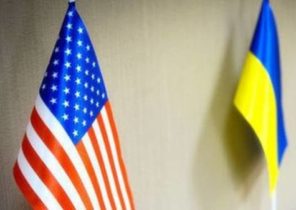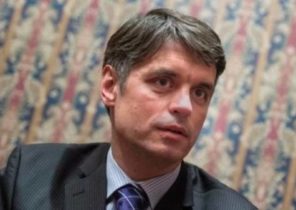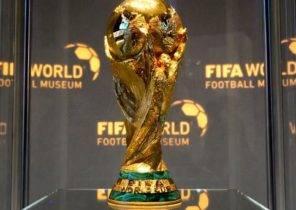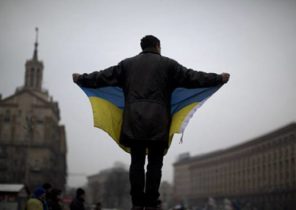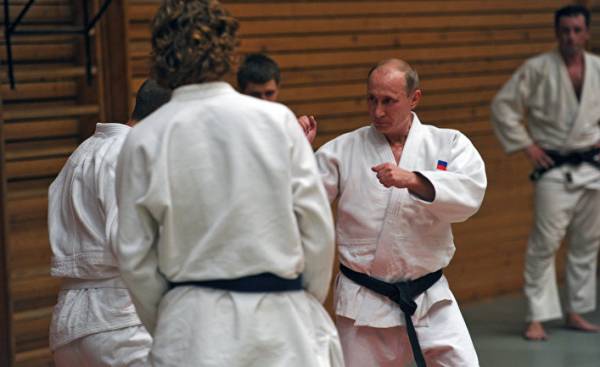
We should pity the poor modern historians trying to explain at first glance, the tangled logic of the trajectory of Russia, which is contrary to all traditional conceptions of the rise and decline of States. Russia is a strange and interesting example of a state that continues to exist, despite the fact that it has already exhausted all its resources and has lost its historical perspective. Just think: despite the fact that the Russian system had rejected all the key principles of modernity, she not only continues to move slowly forward, keeping the system of personalized power, but it also undermines the foundations of the global order, maintaining a constant sense of worry that other influential players have to react. This dwindling system could undermine the existing order not only because she has the unique ability to make a ruckus (this ability is often exaggerated), but because the West can’t decide how to behave with her, and afraid of the potential consequences of the collapse of this system.
Putin is the winner?
Today, after failing to find an effective way to get out of the situation after the annexation of Crimea, and being under the powerful pressure of their own problems, the West, apparently ready to abandon their mantra of “liberal world order”. Ironically, it is now the President of the United States Donald trump is playing the role of the Terminator, which caused the liberal world order crushing blow. A recent trip trump to Europe for summits of NATO and the group of seven, where he openly chastised the European allies of the United States and demonstrated a dismissive attitude toward the transatlantic dogmas, looks like it was planned by Putin himself, seeking to undermine the unity of the West. Made by German Chancellor Angela Merkel’s gloomy conclusion that Europe can no longer rely on others and must now take their fate in their hands represents a dream come true, which even the Kremlin is omitted.
For those who prefer a simplistic black and white images, note that the current situation is, no doubt, is a portrait of “Vladimir-Winner” — especially if you consider the fact that Russia has become a powerful factor in American political life and threatening to deprive of the power of the American President’s legitimacy. Who would doubt that today Russia is able to cause harm on a global scale? Who can doubt that Russians can be proud of his skill in this matter? Even the usually astute David Ignatius (David Ignatius) was shot down in the sense: interviews with Russian officials and analysts, he concluded that “they should be flattered that their country is perceived as a serious threat.”
It all depends on who you talk to, and the ability of the Western Explorer to decipher Russian interpretation and compare it with reality. Meanwhile, even the influential Russian analysts watching the developments on the American political scene, were forced to admit: “Russia, this situation does not Bode well” (Fyodor Lukyanov). With regard to positive and fairly cheerful attitude of the Russian audience at the recent St. Petersburg international economic forum, a Russian Davos — where the audience applauded every joke Putin, this behavior was not a reflection of self-confidence and pride in a victory over the West, but only the usual pretense amid the uncertainty and horror.
Indeed, if the Kremlin feels that he rules the ball, then why President Putin has allowed elected President of the Emmanuel Macron (Emmanuel Macron) used for the projection of power to the detriment of the Russian President? It does not fit into the aggressive style of behavior Putin. And why did the Kremlin suddenly turned off anti-American rhetoric, proposing instead an olive branch and invited Washington to discuss contentious issues? So if the winners refuse to use its advantages to achieve even greater expansion and to achieve geopolitical goals? In any case, now there are plenty of signs that the Kremlin, despite all their complaints and allegations to the contrary, stunned by the spectacle of the collapse of the global order led by the United States, which, in retrospect, was very convenient for Russia.
It should be noted that the presidency trump led to the failure of certain political mechanisms, which the Kremlin successfully used until now. Putin can no longer enjoy his role of “unpredictable king”, which significantly limits the set of tools at the disposal of the Kremlin. The Kremlin can be unpredictable only if he knows the game and how can respond to his Western partners and competitors. Putin has always sought to determine the exact location of the “red line”, the crossing of which would entail unpleasant consequences for Russia. Yes, he made a mistake by annexing Crimea — he believed that the West accept the annexation with the same nonchalance he showed during the war between Russia and Georgia. However, this time the West was forced to respond, though, and thus not to drive Russia into a corner. But the mistake in this case was inevitable: the Russian leader was trapped between the two conflicting settings of his plan for maintaining a system of personalized power, namely between the need to preserve Russia’s great power status and the need to use the resources of the West.
At first, the Kremlin may have excited the sympathy of trump in relation to Putin and his readiness to establish partnership relations with Moscow. However, the Russian political elite was not prepared for the anti-Russian consensus that has emerged in Washington and caused a fierce political struggle. Now, when any step of a trump towards Russia may undermine both the basis for Russian-American relations, and the foundations of his presidency, the Kremlin can not understand how to deal with this toxic situation that can lead to long-term and unpredictable consequences.
Putin is hardly like that instead of working to develop Russian-American “bipolarity” (the Kremlin pursued this goal for several decades, and this “bipolarity” can be based on relations of both cooperation and mutual animosity), trump flirts with China. As if to add to the insult still an insult, it is China, not Russia fills the vacuum that has formed in Europe as a result of reducing the influence of the United States. The Europeans will hold summits with Beijing and not Moscow.
The approach of “ignore Russia”, which the West is now demonstrating, is one of the most painful blows to the Kremlin strategy of “great power”, which is based on the model, namely, to cooperation with the West and the simultaneous opposition to him. It requires a response that makes the world focus again on Russia. However, the Kremlin does not want to take steps that could provoke his isolation. Undoubtedly, Putin has not received any pleasure from Breakfast alone at the summit Big twenty in Brisbane, Australia, in 2014. Now Moscow is trying to decide how she can get on the first pages of Newspapers, while taking care to avoid undesirable and excessively violent confrontation.
The Kremlin expected that the USA when trump will live in accordance with his campaign slogan “America first”, was extremely disappointed. Trump has vowed to pursue the policy that Stephen Sestanovich (Stephen Sestanovich) called “aggressive confrontation” and the “accelerated version of foreign policy activism”. This is not the old-fashioned American isolationism, which Moscow had hoped.
To this list of disappointments of the Kremlin should be added the impetuosity and arrogance of trump and the fact that trump believes business relationships with the guarantee of their benefits and advantages. They can hardly be considered a guarantee of friendly personal relations with Putin.
Today, America trump force the Kremlin to reconsider his survival strategy. No more recklessness and brutality, and no attempt to test the patience of America! Caution and more caution. Yes, from time to time the Russian fighters still appear at the shoreline NATO, but the Kremlin may show that the Bear does not sleep? Kremlin insiders have made a psychological portrait of a President trump and understood, what he differs from President Obama (perhaps the representatives of the Kremlin even experience some nostalgia for the age of Obama). Now the Kremlin faced a new problem, and it is this: if Moscow will begin to restrain their aggressive behavior on the international stage, as she will be able to compensate for the decrease of its internal resources? If she tries to improve relations with the West, she will have to put a lot of effort to not show the Russian public that it retreats because of the fear of an unpredictable reaction of the White house.
A new chance for the Kremlin
However, now that the Kremlin has faced this new challenge in front of him, also opened new ways to solve it. May Secretary Tillerson, in which he outlined the main priorities and principles of US foreign policy, of course, was a consolation for Russia. “Interacting with a specific country or region of the world, we must clearly understand what are the interests of our national security, what are our economic interests, and we should defend and promote our values wherever possible”, — he said. Commenting on this speech, Tillerson, Elliot Cohen (Eliot A. Cohen) wrote that, from the point of view of the Secretary of state, “American interests and American values — are two different things: the first, the second — on opportunities.” Must hear it Tillerson, the Kremlin breathed with relief. The US decision to stop paying so much attention to the promotion of democracy and human rights — a true gift for the Russian authorities. Now that trump has abandoned the traditional American democratic rhetoric of America, German Chancellor Angela Merkel was the only Western leader who still continues to preach Western values to Putin. But without support from America, lectures Merkel is nothing more than a buzzing nuisance, from which you can dismiss, as Putin did during a recent meeting with the German Chancellor in Sochi. Changes in the rhetoric of the United States means that Moscow can finally stop worrying about the promotion of democracy and the “change of regime”. This gives the Kremlin a chance to move one step forward in the realization of its goals on the international stage — toward the consolidation of the idea that promoting democracy is a threat to global security and economic prosperity.
Thus, trump has created new obstacles for the Kremlin, but also new opportunities. The fact that even those whom the Kremlin considered “Russophobes” — for example, the late Zbigniew Brzezinski (Zbigniew Brzezinski) — proposed the creation of a tripartite Alliance of great powers (America, China, Russia), which could be a guarantee of global stability, discusses the Russian political elite as a very promising sign. The “Big three” will save the world order, according to Russian experts have already started to talk about how to maintain the correct balance between the three members of the Alliance. Russia should become an equal partner and to demand respect for themselves for “ideological and political pluralism”, they insist (which, of course, implies respect for its anti-Western principles). Even more inspiring Russians think the line of Henry Kissinger: “Let’s coordinate our needs with their goals”. This is real music to the ears of the Kremlin!
Meanwhile, the American experts also offer their own recipes out of this situation. Let us briefly consider their point of view. Is there something new? From the beginning we hear a familiar song: “the United States needs a new Grand strategy of relations with Russia,” “the United States needs a new strategic imperative”. It is worth noting that we hear such calls in the beginning of each new US administration. But upon closer inspection, the current “new Grand strategy” looks very similar to the previous ones, simply now it is not given as much attention to the empty talk about values: pure pragmatism without any attempt to imitate the concern of a question of values. “New pragmatists” claim that we should forget about the ideological component and the internal political events in Russia and focus exclusively on the behavior of Russia in the international arena. Does all this not sound familiar to you? I remember President Obama also tried to pursue a policy of “differentiation”, but it suffered the same fate as that of his “reset”. On the other hand, devoid of sentimentality and exclusively business pragmatism might be a more suitable option for one simple reason: he’s not going to distract and confuse us with empty rhetoric.
In America, the supporters of establishing relations with Russia trying to convince us that all this postmodern uncertainty that surrounds the rules and principles that emerged after the collapse of the Soviet Union is the best international environment to which we can hope. They argue that we need to stop seeing the world through a dichotomous lens — black or white, democratic or authoritarian, weak or strong, in war or peace, partners or enemies. We must accept this duality, the world “yield” (the words of Zygmunt Bauman (Zygmunt Bauman)) with all its ever changing colors and conditions. But then what created the current confusion in the West about the trajectory of the world, if not the last few decades postmodernist uncertainty in a world full of shades of gray.
Let’s “deal” with global risks, not trying to solve our problems, they say the new pragmatists. Is to pay tribute to their courage with which they recognize their inability to find adequate solutions to all new problems (in the end, a confession of powerlessness is the first step on the road to progress). The adoption of a postmodern “fluidity” is, in fact, is a willingness to go with the flow — but in which direction? The rejection of foreign policy based on values, a transition to incessant tactical maneuvering, whereas a strategy involves the attempt to answer the question: “What do we do next?” Actually all this is very reminiscent of the original version of the famous slogan of the German socialist Edward Bernstein (Edward Bernstein): the movement is everything, goal is nothing. And where this slogan can lead the world?
Recommendations the new pragmatists also do not contain anything special in itself a new and life-affirming. Generally they can be divided into two categories. The first category includes the calls to create (or expand) the communication channels between Russia and the United States. Indeed, to talk and discuss are often very useful. But then ask yourself why the increase in the number of communication channels in the framework of the Russian-American bilateral presidential Commission during the reign of the Obama administration’s “reset” of relations could not prevent the rapid cooling of relations between the two countries? In addition, the traditional addition of the idea of creating channels of communication are proposals to charge “an influential political officials” in both countries, as well as respected experts (respected by whom?) to keep each other in dialogue in resolving differences. The impression that the supporters of such moves are not so much interested in their result, as in its role in this process.
The second category of recommendations, the new pragmatists are all variations of the old formula “containment/collaboration”, which is sometimes masked under the guise of “combination of competition and cooperation.” Indeed, Russia and America needs to continue the search for more effective models of mutual deterrence and dialogue in those areas where cooperation between them is possible. But why is this search so far has not brought any result? It is important to ask another question: why all these attempts not only stimulated the modernization of Russia, but, on the contrary, helped the obsolete System to gain a new power? Those who promote the formula “containment/collaboration” would be very helpful to think about it. Moreover, the policy of “containment/cooperation” is always inevitably turns into an endless bidding around the tactical interests of both parties, and the Kremlin has always made them more visible success.
Perhaps the most amusing offer of U.S. experts was the idea of the need to withdraw from the confrontation and appeasement, making the choice in favor of “middle way”, involving “the search for ways to cooperate with Moscow and counter it if necessary, but without open conflict”. But how can this be achieved? How to follow the middle path between confrontation and appeasement? Please explain to us!
The Kremlin trading condition
I have to remind the new pragmatics of the terms on which Moscow is ready to trade in the framework of preference for the pragmatist model. First, America will have to accept the fact that the Kremlin prefers to “grip” them “delineation”. That is, America will have to accept the fact that Moscow will cooperate with it in Syria in exchange for its consent to accept the Kremlin’s actions in Ukraine. Or that Russia would stop behaving aggressively on the borders of NATO in exchange for the lifting of sanctions. In short, bargaining involves an exchange of concessions.
Second, Washington will have to accept the fact that Russia has the right to interpret international principles and rules as she sees fit, and to accept the Russian concept of international and domestic law. This includes the right of the Kremlin to impose its own perception of international legal order (remember the Carl Schmitt (Carl Schmitt), the famous German political scientist, which justified the foreign policy of Nazi Germany). Thus, it is not about another version of the Yalta formula. This is a brand new formula of survival, not based on rules adopted by all partners (this is the essence of the Yalta formula), and on the right to get around them.
Let’s look at how this process of trading can affect a course of the Russian-Ukrainian conflict, which is the most serious obstacle to establishing relations with Russia. Moscow, of course, already tired of the conflict, and she wants as soon as possible to find a way out. But Moscow cannot do without making at the same time on serious concessions: West recognized the borders of the Ukrainian sovereignty and the right of Russia to consider Ukraine as part of its sphere of influence — such a precedent could trigger a chain of events that will negatively impact on the global status quo. Would America such a requirement? It seems that the new pragmatists offer a less radical solution: they propose to follow the approach of “duality”, in which the process important than the result, and attempts to deal with the problem more important than the decision itself. This approach will lead to the fact that the bloodshed in the Donbass will never end. However, it’s such a wonderful opportunity to experiment with solutions to the problem!
I wonder how well Rex Tillerson understands the Kremlin’s formula of trading now, when he is preparing his master plan for the settlement of the Ukrainian crisis. And what motives he is guided? The desire to normalize relations with the Kremlin? Writes Josh Rogin (Josh Rogin), “Ukraine has become the place where are still controversial trump plan to improve relations between the US and Russia can get the first push to implementation”. If plan is the case, then Ukraine will have to throw into the breach, because President Putin is not ready to recede from his vision of the Minsk agreements, which he has repeatedly demonstrated.
Attempts to formulate a new “Grand strategy” is often like trying to use a new, more modern terms to disguise a complete lack of new ideas. They are also a clear demonstration that the rationalism of the West is not in conformity with the rationalism of the Kremlin. Or the West simply cannot understand Russian logic of survival? Recall, for example, the idea expressed by some us experts: they propose to turn Russia into a tool of containment of China’s rise. Do they really believe that the Kremlin is so naive and stupid that it will allow itself to be used against China? It is a real insult to the intelligence of the leaders of the Kremlin.
But what about bidding on Syria? The impression is that the Kremlin really wants to find a way out of this conflict. But what America is ready to give the Kremlin for its cooperation? Some experts suggest that the Arctic could become an area of possible dialogue between Russia and the United States. But listen, Russia has already guaranteed himself a military and industrial presence there, and Moscow feels the right to dictate a plan of action. I don’t think Moscow will agree to sell its business opportunities in the Arctic in the context of the United States. Ready Washington to become the Junior partner of Moscow?
The current shift of America’s unsentimental pragmatism and readiness to conclude the transaction opened up new possibilities to restore relations with Russia, and the Kremlin should be happy with the emergence of such a chance. Today Merkel and macron also talk of normalization of relations with Russia (macron even said about his desire “to strengthen its partnership with Russia” in the fight against terrorism), clearly hoping to achieve this in the context of Europe. But what are these conditions? In any case, Putin patiently awaits the start of the process. Besides, no one can compete with the Kremlin in the operational tactics and determination.
Building relationships will allow the Russian ruling elite to continue to adjust his anti-American and anti-Western propaganda to achieve political goals (including turn it off if necessary) and simultaneously restore one of the most powerful engines of survival of the current Russian system, that is, to begin again to use the resources of the West. However, although this approach will help to keep the Russian system of personalized power, it will not help to modernize Russia. The supporters of this approach or simply did not consider these consequences, either good about them aware but prefer to ignore them. Both of these explanations are rather gloomy characteristics of their ability to strategic thinking.
